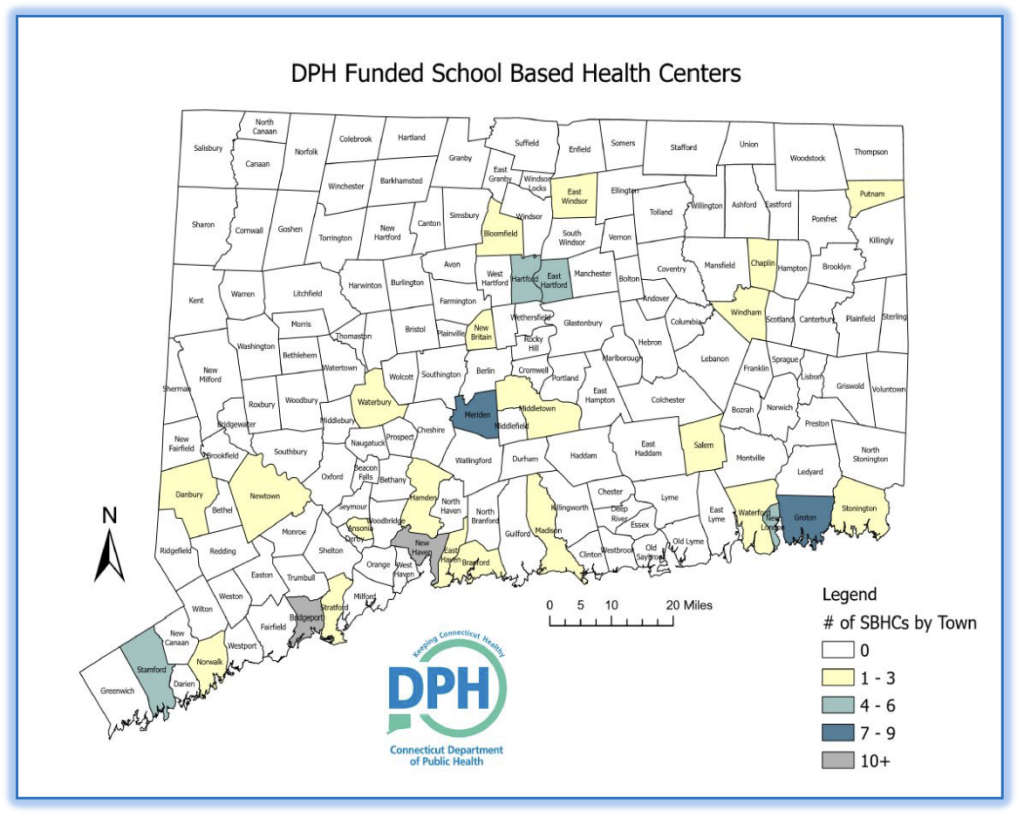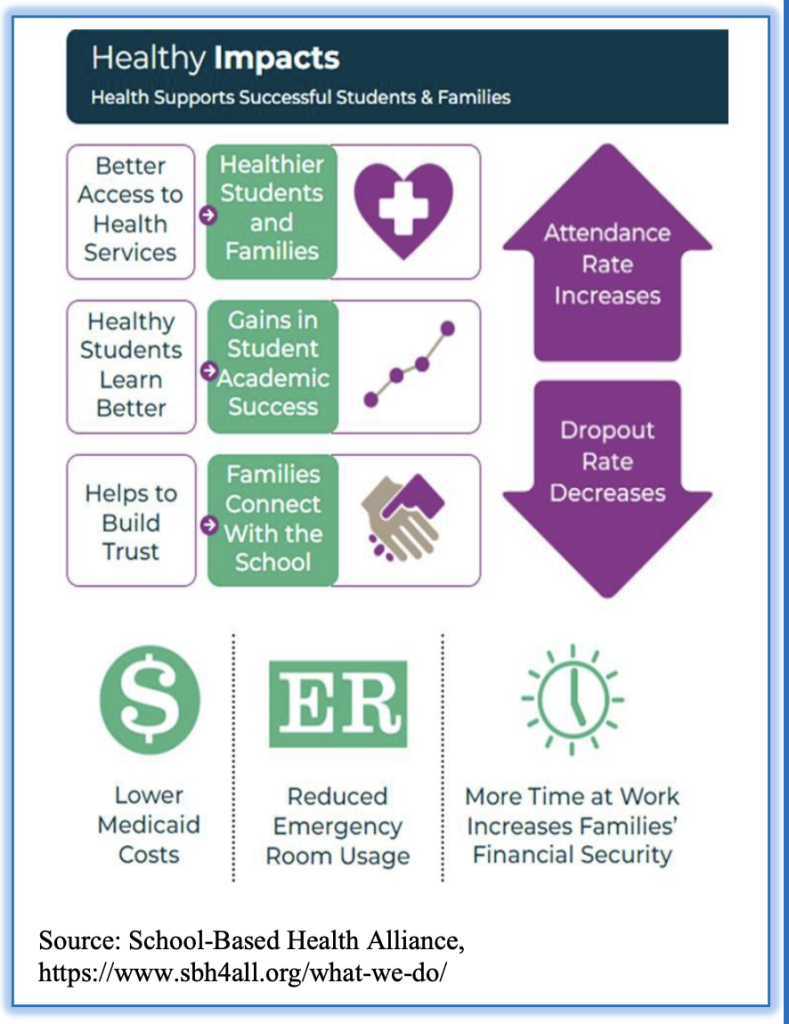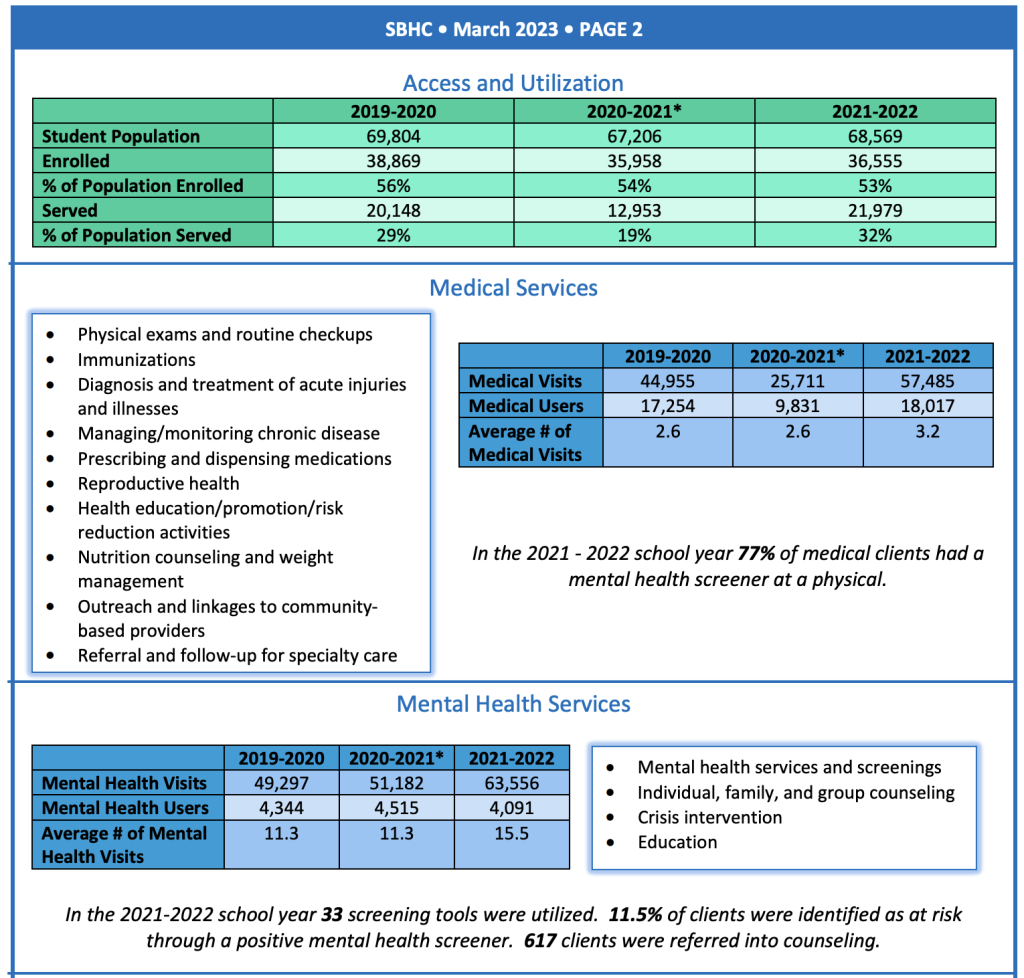
Please Follow us on Gab, Minds, Telegram, Rumble, Gettr, Truth Social, Twitter
The Connecticut Department of Health (DPH) is currently funding 90 School Based Health Centers (SBHCs) in 27 communities across the state as an alleged benefit and convenience for parents.
SBHCs are free-standing medical clinics that are located within or on the grounds of schools. The facilities are either licensed as medical clinics or hospital satellites and are open to all enrolled students in the school regardless of ability to pay or insurance status. DPH positions SBHCs as a benefit to working parents who are not required to attend their children's appointments at the SBHC.
A majority of centers, 78 SBHCs (87%), offer a full range of programming that includes medical and mental health services. The other 12 SBHCs (13%) are considered "Expanded School Health" programs which offer more limited medical or mental health services.

DPH tells parents that SBHCs support students by providing "a safe place to talk about sensitive issues such as depression, family problems, relationships and substance abuse" and by identifying and addressing health problems that "may interfere with the learning process."
Of course you may wonder who is responsible for identifying health problems that interfere with the learning process, and what criteria are being used to make such determinations.
Nonetheless, nearly 70,000 Connecticut school children have accessed SBHCs each year over the last three school years, most likely without a parent or guardian in attendance. This seems especially shocking when you consider that some of the services offered at these centers include vaccinations, dispensing medications, and reproductive health—areas where there are vastly different perspectives on the correct choice of treatment.

For instance, most people recognize that covid shots are not safe or effective, but children who have been very susceptible to covid propaganda might not know this important truth. Could they roll into the SBHC and get vaccinated for covid even if it's against their parents' wishes? What about dispensing dangerous and addictive psychotropic medications or ADHD stimulant drugs? Or what about guidance on gender-affirming care? Is that something that might come up under the guise of mental or reproductive health?
Did you know that according to an Office Legislative Research report from 2002, there are five major areas of health care where, under Connecticut law, no parental notification and/or consent is required at all:
While some parents may embrace SBHCs for the convenience factor, others consider the centers to be an assault on parental rights, and worry that schools are trying to assume responsibility for medical and mental health decisions for their children.